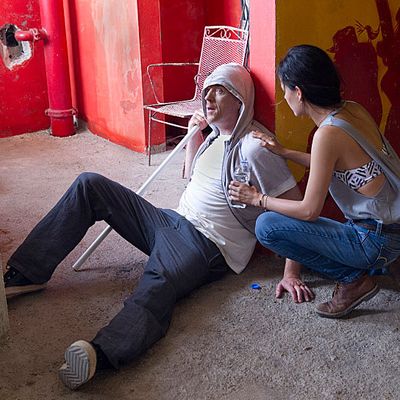
It took me three tries to get all the way through this week’s Homeland. And when I finally, laboriously made it past the halfway point, I found myself consumed by a thought I never figured this show would elicit. As a bald and panting Nicholas Brody scanned his ferrety eyes across Caracas, all I could think was, Oh my God, who gives a shit?
Season one feels like a long-ago fairy tale, and the more I think about it, the more it escapes me, like I’m trying too hard to remember a dream. Season two: Bumpy. I didn’t hate “State of Independence” (the one where Brody killed that guy in the woods) as much as everyone else did, and I held out hope until “Broken Hearts,” when Brody killed Walden. That’s when the show took a severe turn for the worse, even more than with Dana and Finn’s dumb hit-and-run story line. And now, in season three, the show seems to have lost track of what it’s about, what it was ever good at, what kind of story it’s trying to tell. When I first gushed about Homeland, I used to tell people it was like 24, if 24 had stayed good. Now … it’s more like all of 24: A great first season, and then a long way down.
Brody being stuck in a half-unfinished danger tower, shooting heroin given to him by an elegant pedophile, and picking up bits and pieces of Spanish is not the only weird misstep this season. On “Uh… Oh… Ah…,” Saul suddenly became hugely Islamophobic and berated CIA newbie Fara for wearing a headscarf. What? That’s not the Saul we know. On the season premiere, the show for some reason lingered on the fact that Dana’s grandmother has never even heard of Beowulf. Who could possibly find that interesting?
Homeland started out as a show that was about the topsy-turvy qualities of hypervigilance; that constant surveillance turns strangers into people we know (think of how Carrie knew what tea Brody liked before he ever told her), but turns the people we know into strangers (like when Dana first spotted her father praying). In the first season, and even much of the second, Carrie’s mental illness wasn’t just about mental illness; it also reflected the damage of pervasive cultural paranoia and how it renders us all as unreliable narrators.
The actual terrorist plots — the suicide vest, the pacemaker, the car bomb, whatever — should be to Homeland what the advertising pitches are to Mad Men: a prism through which we can view the characters, a thematic exploration of what’s going on in the story, but not the full story itself. But in Homeland’s attempt to be expansive with its narrative, the show became more shallow. Not everything has to be an obfuscated symbol that stands up to endless dissection, but it would be nice if Homeland were at least trying to weave complexity into its stories. Unsubtitled Spanish is not a complexity.
Going into this season, I was hopeful — the wrongs of last year could be made right! Now I’m filled with dread and disappointment. “I’m on your side,” a mysterious and likely duplicitous lawyer told Carrie this week. Jeez, dude. Why?




